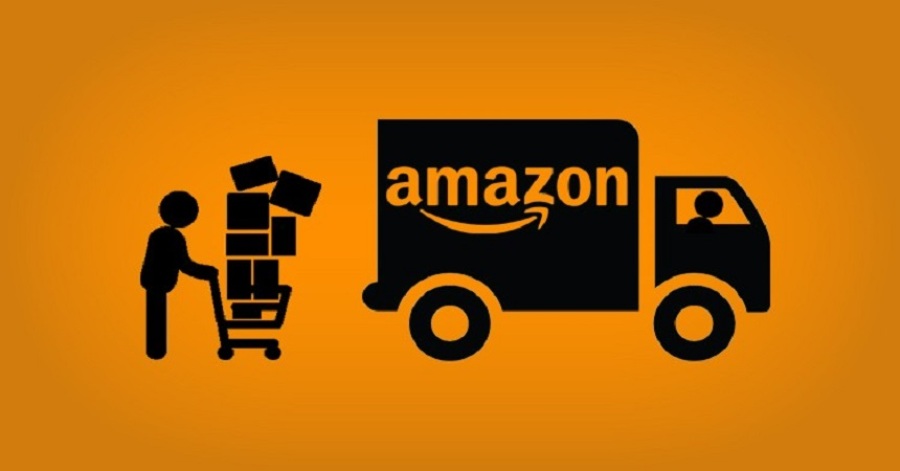Competition of Google and Amazon’s Is a Win for E-Commerce Companies
The Competition of Google and Amazon’s Is a Win for Smaller E-Commerce Companies
Internet business is blasting, and one player is driving the charge. Amazon is required to drive 80% of all internet business development this year. That is intense market mastery for anybody to break.
Enter Google, Amazon’s long-term match, which has as of late started emptying assets into its elective online business stage, Google Shopping. Also, the planning couldn’t be better: as per an overview from Survata, web a lot of U.S. buyers’ underlying item seeks developed from 28% to 36% somewhere in the range of 2016 and 2017, while Amazon’s dropped from 55% of every 2016 to 49% of every 2017.
This isn’t the first occasion when that Google has upset a territory which Amazon rules. They as of late extended their Home gadget range to specifically contend with Amazon’s Echo line of gadgets. The surveys are part, regardless of Amazon’s long market restraining infrastructure; Google propelled Google Home in November 2016, an entire two years after Amazon appeared the Echo shrewd speaker and had propelled two adaptations of the littler Dot. The opposition between the gadget’s voice partners’—Google Assistant and Amazon’s Alexa—stays similarly as tight.
What’s more, as the two Goliaths battle about online business, little to medium-sized web based business organizations have an opening.
Kyle C. Murphy, expert staff of technique at Pepperdine Graziadio Business School, knows web based business back to front. Here are a couple of his bits of knowledge with respect to how littler organizations can benefit.
The accommodation of Google’s Shopping feed
Amazon is the online business officeholder. As per specialists at e-Marketer, Amazon is set to take 49.1% of all U.S. internet business deals in 2018—that works out to 5% of all retail deals in the nation.
Google Shopping is an immediate test. The objective is to enable clients to hunt and afterward click “purchase now” straightforwardly from Google by utilizing Google Express. “Google encourages the exchange without the need to go a merchant’s site and explore the buy procedure,” says Murphy. “They’re having a go at bring clients and stores nearer together through Google seek.”
Google has tried different things with its Shopping highlight for a couple of years, yet it is quite recently turning into a distinct advantage for little to medium-sized web based business organizations. That is in substantial part on account of the comfort that is being incorporated with the item.
“Individuals purchase a great deal of things on Amazon since it’s simple; you simply click a catch and it is done,” says Murphy. “Individuals aren’t going at the most reduced cost, they’re going for comfort. That is the place Amazon rules. Google’s endeavoring to get in on that.”
A friendlier arrangement through Google
Amazon’s stage has developed toward a path that makes it troublesome for littler web based business organizations to emerge. It is difficult to appear in an Amazon seek because of firm rivalry and an expansion of thump offs. Likewise, while Amazon used to empower more natural query items, it presently for all intents and purposes necessitates that organizations purchase promotions to appear in inquiries—more often than not the best three items that are recorded are sponsored.
Furthermore, Amazon then takes a cut of the revenue for any purchase.The numbers are pessimistic. According to a report by e-commerce market intelligence firm PipeCandy, Amazon has over two million sellers worldwide, but only about 100,000 sellers make $100,000 in profit a year In total, those 100,000 venders have paid $30 billion in commission to Amazon—and that does exclude any publicizing the merchants paid for.
For the 85% of online business organizations that produce under $1 million in income (again as per PipeCandy), Amazon may never again be an alluring alternative
As Google improves, it is building a situation friendlier to littler internet business venders. For instance, while Google requires some promoting with the end goal to be seen, organizations “don’t need to spend as much to appear in ventures in the event that they get their item feed to Google functioning admirably,” Murphy says.
Difficulties still exist through Google Shopping
There is one little drawback to Google Shopping: to get recorded, vendors need to pay some dues.
For one, Google pulls every one of its postings information straightforwardly from a merchant’s site, and it expects the data on that site to be to a great degree clean. The organization can avoid merchants who don’t conform to its strict posting benchmarks. “In the event that you say ‘deal’ or some limited time data feature, it’ll show it out and won’t acknowledge it,” Murphy says. For wannabe Google Shopping dealers, precisely developing item substance to meet Google’s item information determination rules is an unquestionable requirement. Likewise, Google requests that dealers refresh their postings each 30 days, generally the item will drop off Google Shopping.
At the end of the day, submitting to the feed administration apparatus can be tedious and require a considerable measure of meticulousness. Venders must check and twofold check little subtle elements to guarantee the item information meets Google’s prerequisites, similar to whether the posting is in the correct classification and if the feature watchwords are right, for instance. There are outsider administrations that improve and oversee postings for the vender’s benefit. These can frequently smooth the procedure and can be a savvy venture.
Despite the fact that it may not be very as easy to use as Amazon, Google gives littler online business organizations a more prominent chance to create benefit. Online business dealers just need to pursue Google’s rules deliberately, and they could reap real rewards.

